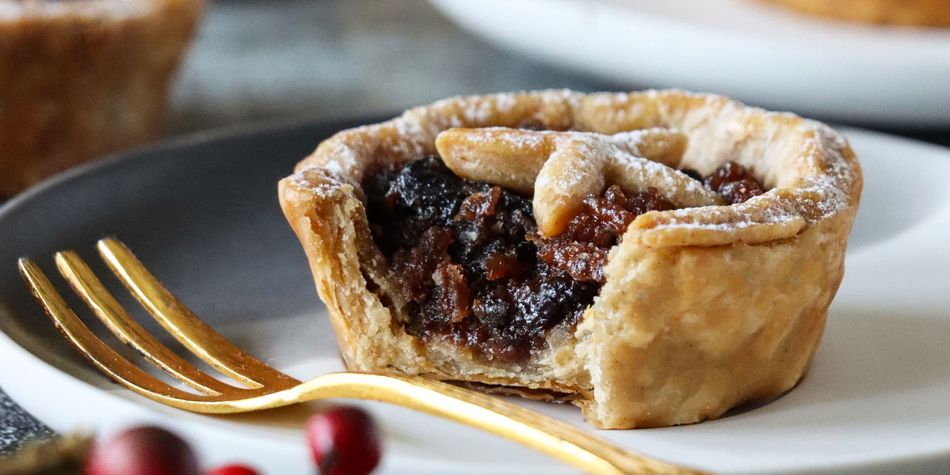By clicking a retailer link you consent to third-party cookies that track your onward journey. This enables W? to receive an affiliate commission if you make a purchase, which supports our mission to be the UK's consumer champion.
Four common festive accidents to avoid

Whether teetering on a step ladder to hang the last of the lights, or tackling multiple jobs in the kitchen, the chaos of Christmas can make for a higher risk of accidents and mishaps.
The Royal Society for the Prevention of Accidents (ROSPA) estimates that around 80,000 people head to hospital each year with not-so-merry Christmas related injuries during the holiday period.
The season is upon us, and with health services under pressure it's a good idea to be extra cautious this year if you can (though of course, you shouldn't hesitate to visit A&E if you do need to).
We've rounded up some of the more common causes of Christmas injuries with tips on how to minimise the risk.
Tips for living well-get our free Food & Health newsletter: shop savvy, eat well, stay healthy
Slips, trips and falls

It's lovely to see houses lit up for Christmas during the darker December days, and it seems like each year decorations get more elaborate and widespread, but caution is required when putting them up.
According to a survey by the National Accident Helpline, 1 in 50 people have fallen out of the loft while bringing down tinsel, baubles and other decorations, and the NHS has reported up to 2.6 million falling from stools or step ladders when hanging their festive lights.
Safety steps to take:
- Make sure you're standing on a sturdy ladder - rather than a chair or stool nicked from the kitchen - when hanging decorations or lights
- Whether inside or out, ensure you're on even or solid ground, and where possible have someone handy to hold the ladder and watch out for you
- If you need to get things down from the loft, make sure you've got someone supervising at the bottom of the ladder to help you / hand things over to
- Avoid leaving piles of wrapping, trailing wires, greasy spills or presents lying around the floor where people might slip on them.
Kitchen mishaps

The many elements of a Christmas dinner means that a lot is usually going on in the kitchen on Christmas Day.
Amid vegetables being peeled and chopped, the oven being on for hours, and possibly more people than usual milling around, it can be easy to overlook basic kitchen safety.
ROSPA recommends:
- Keeping children out of the kitchen
- Using the back hobs if possible
- Turning saucepan handles inwards
- Taking extra care when removing trays from the oven.
To avoid the dangers of uncooked meat, see our guide on how to cook a turkey, and consider getting a meat thermometer to take out the guesswork.
Plus, find out which peelersandkitchen knives do the best job.
Fires and electrics

Fires in the home are more common around Christmas time.
Whilst they add to the festive atmosphere, having multiple candles lit around the house, a log fire going, or lots of electrical wires competing for socket space can be a fire hazard.
The National Accident Helpline recommends:
- Keeping Christmas cards and decorations away from heaters and fires
- Never leaving candles unattended
- Not overloading the plug sockets.
You shouldn't leave Christmas lights on overnight, and be careful of where you buy them from. In the past we've found unsafe Christmas lights sold on online marketplaces.
Crucially, check you have a safe and functioning smoke alarm and know where to place the smoke alarms in your house.
Unsafe toys

Unfortunately, some well-intentioned presents could have hidden risks, so it's worth knowing what to watch out for.
Earlier this year, we uncovered some shocking examples of unsafe toys being sold on online marketplaces.
Many of them included small plastic pieces or parts that could break off and present a choking hazard, and worryingly, some had magnets that could cause internal damage if swallowed.
Button batteries are very dangerous if swallowed. Toys with these batteries need to have lockable battery compartments. Don't let children have access to toys or other items that don't have properly secured battery compartments.
To spot a dangerous toy, you can check things like:
- Whether it's much cheaper than similar products - potentially indicating poor quality
- Missing instructions or warning labels
- Small parts that could cause a choking hazard
- Battery compartments that aren't lockable
Best food and drink - see our festive picks for the best champagne, mince pies and more



